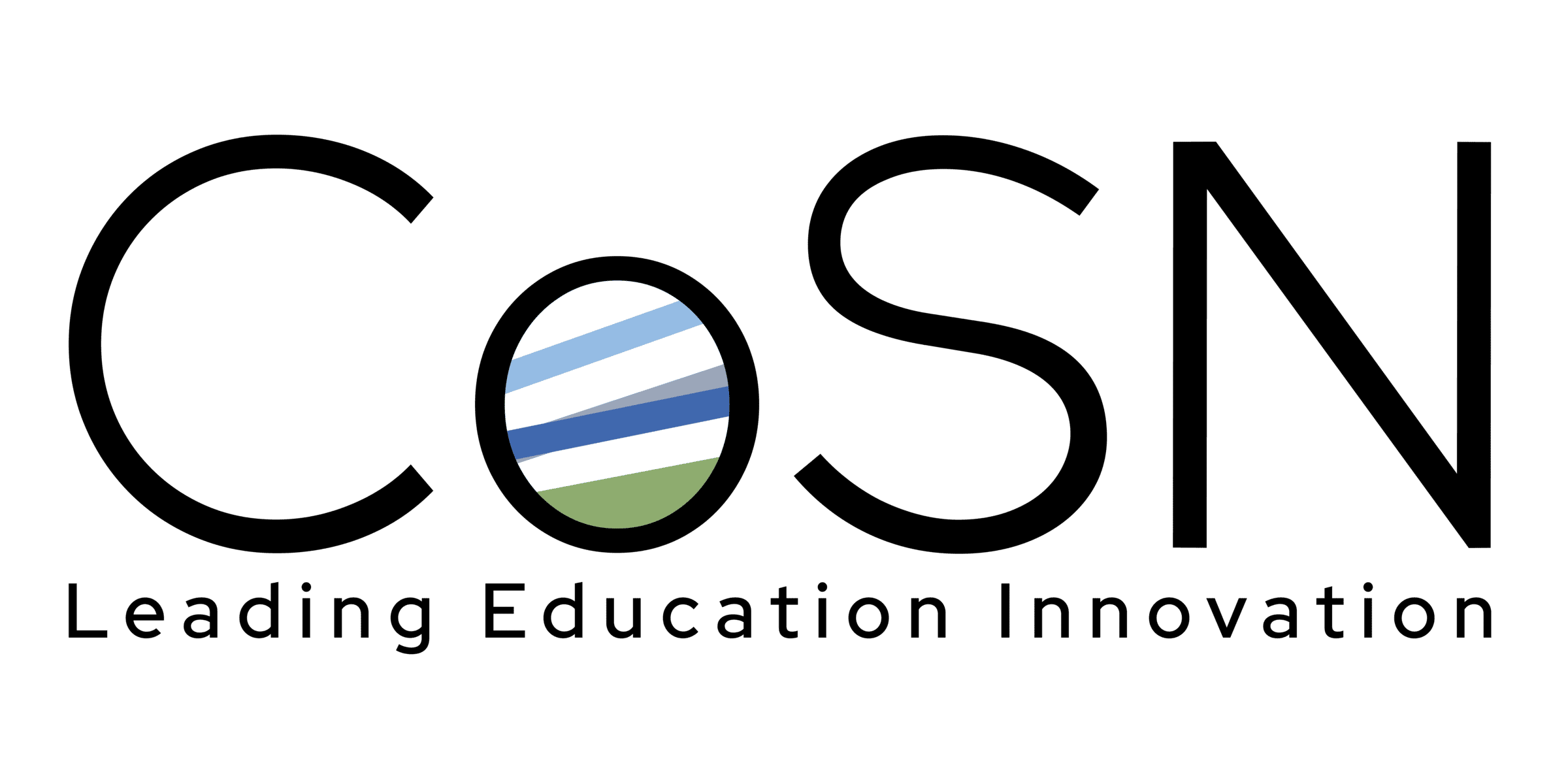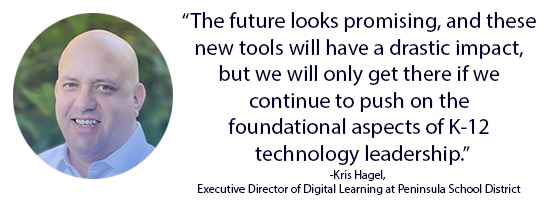Blog 2 of the ASU GSV 2023 Blog Series
I recently read that we were facing a tectonic shift in Education with the release of some of the new AI tools hitting the market and the pace with which these tools will impact Education. After attending the ASU + GSV conference in San Diego in Mid-April as a guest of CoSN, this wording is appropriate.
ASU + GSV is primarily a conference for EdTech Startups and Venture Capital firms to get together with educators and school leaders and discuss the future of Education from their perspectives. There were plenty of ideas, thoughts, and new products that we were able to see and provide feedback on how those products can best work to improve Education and work in support of teachers.
ChatGPT and Large Language Models (LLMs) took the world by storm in November 2022, and innovators, developers, educators, and other stakeholders in Education are now beginning to fill their products with new ideas to leverage these technologies. Attendees to the conference could see professors using ChatGPT natively to download, grade based on a rubric, and then re-upload assignments to their LMS using ChatGPT written code. Sal Khan showed a demo of the new Khanmigo product, where they built GPT-4 into many aspects of the Khan Academy experience to assist students as a direct tutor. EdTech CEOs were also plentiful with many assessment, lesson planning, and mental health and wellness tools built around GPT-4 and other large language models.
While all these inventions and innovations are exciting, Education Technology Leaders must focus on some foundation elements CoSN has worked on for years. It should go without saying that school leaders need to be vigilant around student data privacy and building out trusted learning environments around using all of these new tools. There are many reports of people uploading corporate secrets into ChatGPT already. It doesn’t take a giant leap to imagine that school staff may be inappropriately doing the same with private operational or student data. OpenAI and others will likely make this safe, but school leaders must clarify that this practice must be closely monitored.
After attending a session put on by WGU about how they can determine interventions for struggling students using AI, ML & other Data Science tools, (I)t was apparent to me that if we don’t start requiring our vendors to give us native machine-readable access to all our data, schools are going to be hampered in being able to realize some of the possibilities these new tools provide. Organizations working for years around Data Interoperability and working with vendors to access all their student data will also be poised soon to be able to do some amazing things with these AI tools. We are not far off from a future where teachers can ask a chatbot or voice assistant questions like “Which of my students are struggling with phonemic awareness and specifically phoneme isolation on our last screening assessment?” or building administrators can ask questions like “Which of my parents are most engaged in their students’ learning (or least engaged) through LMS, newsletter, email, text message and other communication activity with building staff?” The days of spending significant time digging into data dashboards and data sets could end in the not-too-distant future.
The future looks promising, and these new tools will have a drastic impact, but we will only get there if we continue to push on the foundational aspects of K-12 technology leadership.
Author: Kris Hagel, Executive Director of Digital Learning at Peninsula School District
ASU GSV 2023 Blog Series
Blog 1: What EdTech Leaders Learned from ASU GSV 2023
Blog 2: AI is Poised to Change the Future of Education: Data Interoperability and Privacy Need to be the Foundation
Blog 3: A Reminder of the Global Perspective
Blog 4: The AI Revolution: How Artificial Intelligence is Shaping Our Future
Blog 5: AI Observations from EdTech Innovators
Published on: May 30, 2023
CoSN is vendor neutral and does not endorse products or services. Any mention of a specific solution is for contextual purposes.


